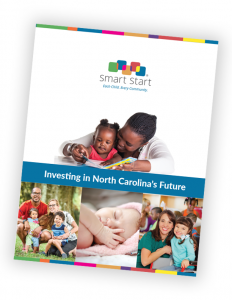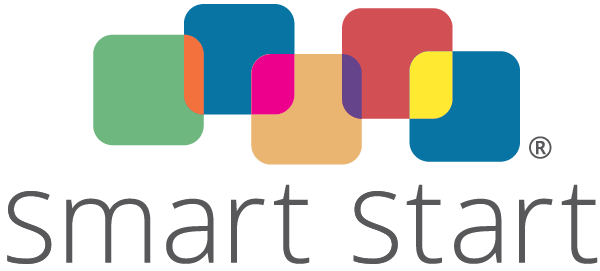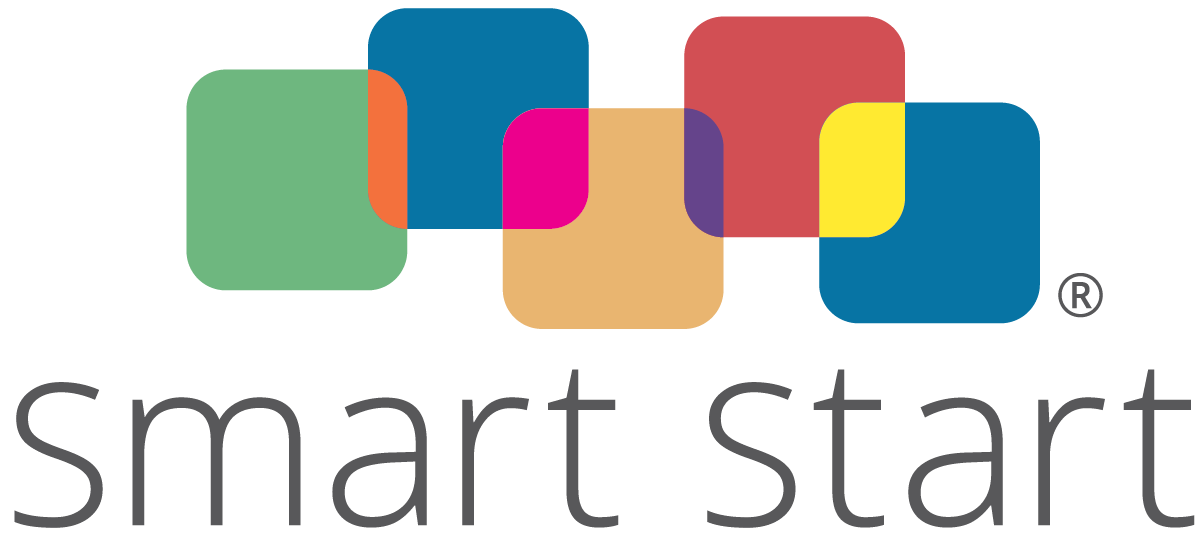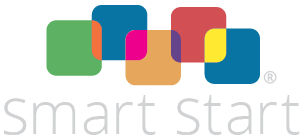The Value of a System of Early Childhood: The Value of Smart Start
 Smart Start’s efforts to support children and their families and improve early childhood outcomes in every community in every county began in 1993. Today, many children attend high-quality early care and education programs, their parents have increased access to home visiting and parenting education, and new collaborations are supporting early literacy and early relational health. This would not be possible without the hard work and commitment of Smart Start local partnerships and partners at both the state and local levels who work together to ensure each young child in North Carolina is thriving and ready to begin kindergarten.
Smart Start’s efforts to support children and their families and improve early childhood outcomes in every community in every county began in 1993. Today, many children attend high-quality early care and education programs, their parents have increased access to home visiting and parenting education, and new collaborations are supporting early literacy and early relational health. This would not be possible without the hard work and commitment of Smart Start local partnerships and partners at both the state and local levels who work together to ensure each young child in North Carolina is thriving and ready to begin kindergarten.
Part of the Smart Start network’s success can be attributed to high quality pre-K experiences for children. Statewide, Smart Start local partnerships support NC Pre-K, with about half of the state’s NC Pre-K programs being administered by local Smart Start partnerships, and Smart Start local partnership members or designees serving as co-chairs on all NC Pre-K Advisory Committees.
Yet, participation in pre-K alone is not the sole determinant of childhood success. A variety of other factors both inside and outside of the classroom impact a student’s learning and development.
Supporting young children in home, school, and community is a shared priority of the Smart Start network and many others in the state, including the General Assembly, the Governor, and state departments; the child care resource and referral system; higher education; businesses; county governments; faith-based organizations; school districts; health care providers; philanthropists; and more, who see the power of it in their communities. These relationships have made North Carolina a pioneer in early childhood systems-building, particularly for a comprehensive approach, beginning prenatally to age five.
The Need for Comprehensive Approach
The need for a comprehensive approach to early learning was apparent in a recent study from Vanderbilt University evaluating the Tennessee Voluntary Pre-K program. The study found that children participating in the program in the 2009-10 and 2010-11 school years demonstrated lower test scores and worse outcomes in discipline, attendance, and special education than the control group. The study raised valid questions about Tennessee’s model of pre-K from 2009-2011. But it is worth noting that Tennessee’s Pre-K system has changed significantly since then to improve children’s outcomes. Furthermore, the findings from the study run counter to most of the established research about the positive impacts of pre-K programs in other states and localities.
 An important takeaway from the study, however, is that preschool programs should provide experiences that support child development beyond academic skills. Young children need opportunities to play, build relationships with caring adults and peers, and interact with their environment to ensure positive physical, cognitive, social, and emotional development.
An important takeaway from the study, however, is that preschool programs should provide experiences that support child development beyond academic skills. Young children need opportunities to play, build relationships with caring adults and peers, and interact with their environment to ensure positive physical, cognitive, social, and emotional development.
Also, a one-size fits all approach to supporting early learning is inadequate to serve a diverse society that values children in family and community contexts. For this reason, Smart Start supports home-based, community center-based, faith-based, and school-based early childhood education programs. The recent Vanderbilt study is just another call to action to ensure state-funded pre-K offers comprehensive learning environments and that state-funded systems like Smart Start continue to offer comprehensive supports from birth to kindergarten.
Smart Start network initiatives focused on more than just pre-K for comprehensive support to children include:
- Home visiting and parenting education supports,
- Resiliency work focused on increasing protective factors against Adverse Childhood Experiences (ACEs)
- Early childhood nutrition and physical education supports
- Family Leadership and engagement supports
- Early childhood literacy development
Smart Start is proud to serve the youngest North Carolinians – our state’s most precious resource – for nearly 30 years. Through evidence-based, evidence-informed programs and services, Smart Start will continue to serve children and families—from NC Pre-K sites to other early care and education providers to family support and literacy programs in the home.
If you’re interested in learning more about Smart Start’s work in communities, you can read more about Smart Start’s work throughout the state in the 2020-2021 Impact Report.


